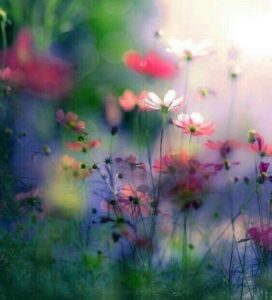BY ELAINE KLAASSEN 
Does anyone need to be reminded that it is in our best interests to nurture the Earth?
In May of 2019, Minnesota Governor Tim Waltz signed legislation that set aside $900,000 for pollinator-friendly native plantings. The money, available through the Lawns to Legumes program, was dispersed in small grants to homeowners and in big grants to local governments and nonprofits to create “demonstration neighborhoods.” The Corcoran Pollinator Project (CPP), together with Corcoran Neighborhood Organization (CNO) and Metro Blooms, received a big grant, for $40,000. Many other neighborhoods received them as well, including Longfellow. These projects are crucial because the bees, butterflies and moths that undergird our food supply by pollinating crops need our massive support; they are seriously endangered, susceptible, vulnerable.
According to Douglas Tallamy, an entomologist at the University of Delaware (from an article in The Smithsonian, April 2020), the endangered pollinators could be revived through a “rewilding” of America. He would like to see native flora blooming in every square foot of the land not paved or farmed. One of his frequently cited statistics: “86% of the land east of the Mississippi is privately owned. A large fraction of that is cultivated for food or planted in lawns. For ecological purposes [those areas] might as well be a parking lot.” A desired outcome of his work would be the linking of pollinator-friendly patches from coast to coast to feed the creatures we count on.
Minnesota will be doing its part. CPP started seeds for 10,000 plants last December, which are now coming up, and the grant will help them start more seeds next year. And, it will now be possible to create 30 new gardens in Corcoran and Phillips neighborhoods this year; pay professional designers to consult with individual grant recipients on garden design; do broader outreach to invite a more diverse array of folks to participate; provide work for youth crews; create a tool library; offer workshops for neighborhood residents to learn about garden maintenance, weed ID, etc. There are also grant funds to install native shrubs and trees.
There are obstacles because of the virus, of course, but the response has been flexible. CPP, CNO and Metro Blooms will be offering online workshops and are exploring how to facilitate garden creation using social distancing as long as it’s needed.
The first free online workshop (“Resilient Yards”) for residents of Corcoran and Phillips who are interested in creating a pollinator garden or participating in the program will be 5:30 to 8:30 p.m. on Thursday, May 14. People can register by contacting [email protected]. Or sign up at bluethumb.org. Hopefully, the next upcoming workshop will be a Q&A for people with pollinator gardens who have questions about it.
While the threat of COVID-19 hangs over our heads, we haven’t forgotten about caring for the Earth. When the threat has subsided, we will continue taking care of our Mother Earth, not out of altruism but rather as a mutually beneficial/respectful relationship.























